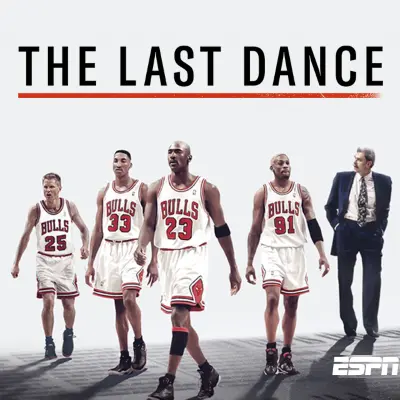ESPN Michael Jordan documentary The Last Dance is a glorious gift to a sports-deprived public
-

ESPN's 10-part documentary from director Jason Hehir, airing over the next five Sundays, "would have been a great, widely consumed sports-umentary under any circumstances," says Jen Chaney. "But in the odd, trying times Americans and people around the globe are experiencing, it will be revered as a dunk- and drama-filled oasis in a time of drought. The series effectively ticks a number of boxes that audiences desperately need to be ticked: 1. It gives people something to watch and, with two hour-long episodes landing every Sunday from this week through May 17, something they can look forward to at the end of every long, long week. 2. It provides content that’s both sports-related and new, albeit driven by looking to the past. 3. It taps into a deeply nostalgic vein for anyone who followed Jordan and the Bulls, or just misses the 1990s...4. It gives everyone a docuseries to experience and discuss that isn’t Tiger King." Chaney adds: "What emerges more and more as the episodes progress is just how intense Jordan is, not just on the court but off of it as well. There was speculation at one time that he had a gambling addiction — The Last Dance covers that, too — but what Jordan admits to being addicted to above all else is winning. What seems to have fueled him more than anything was spite."
ALSO:
- The Last Dance is terrific, but it's not geared toward non-sports fans: "If you come in with even a modicum of enthusiasm, it's a tremendously engaging, ridiculously fun assemblage of spectacular basketball footage and reasonably introspective interviews with almost everybody you'd hope to hear from on the subject," says Daniel Fienberg, contrasting it with ESPN's O.J.: Made in America.
- The Last Dance is not just a TV series -- it's a cultural event: "It is not only an ode to the years in which 'everyone knew Michael Jordan,' as journalist Willow Bay says in the series, but also an attempt to recapture their magic," says Matt Brennan. "As such, while Hehir’s vision is not terribly sophisticated when it comes to race or politics or the long arc of social history, it is extraordinarily perceptive about celebrity — what makes it, what breaks it, what shapes its character and magnitude. Without downplaying Jordan and his teammates’ remarkable prowess, the series tacitly acknowledges that fame, even in sports, is a function of framing, of timing — that what the show of the ‘90s and the team of the ‘90s had in common, as Seinfeld intuited, was first and foremost the ‘90s."
- The Last Dance is not part of ESPN's 30 for 30 series, but it shows 30 for 30's impact on ESPN: "It is worth noting — and almost never pointed out — that The Last Dance is not part of the series at all," says Will Leitch. "It is actually a co-production between ESPN Films and Netflix (it will debut internationally on Netflix April 20). But it’s a mark of the brand’s influence that even though The Last Dance is not a 30 for 30, we instinctively refer to it as one."
- The Last Dance is nearly perfect, but it could've further explored Jordan's avoidance of social activism
- Michael Jordan says The Last Dance will make people think he's a horrible guy
- Why did it take so long for a Michael Jordan documentary to be made?: "As far as why it took so long, I think there's a couple things at work," director Jason Hehir tells EW. "The idea of a 10-hour documentary didn't really exist back in the late '90s when this shot — unless you were Ken Burns. It was only recently that the proliferation of long-form documentary series has come into our pop culture, and that people have a ravenous appetite for these kinds of series. Made in America, the O.J. Simpson doc, broke down that door, and then you have everything up to Tiger King from a few weeks ago that people are willing to sit there and invest time in a story if it's well told. I also think it's no small coincidence that when Michael agreed to finally let this footage be used, we were coming off a 73-win season for the Golden State Warriors and people were openly wondering if that was the greatest team of all time, and not his '96 Bulls, who were 72-10. And it was when LeBron James went back to Cleveland and won a title for the Cavaliers, and people were all of a sudden saying, 'Well, maybe LeBron is the greatest of all time.' Michael doesn't really care to get into those conversations, and he always takes the high road. For a guy with as many accomplishments as Michael, and as prolific a superstar as he is, he's remarkably humble and reticent when it comes to discussing his own greatness. But, knowing the competitor that he is and knowing that fire that still burns inside him, it's tough to imagine that those Warriors teams and the emergence of LeBron as a possible GOAT candidate didn't play a role in his agreement to sit down and tell his story."
TOPICS: The Last Dance, ESPN, Jason Hehir, Michael Jordan, Documentaries
More The Last Dance on Primetimer:
